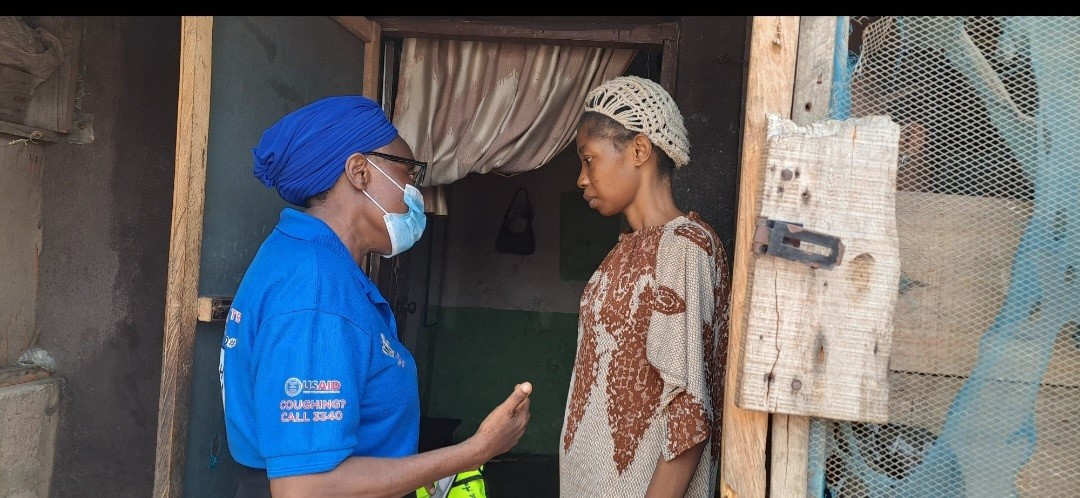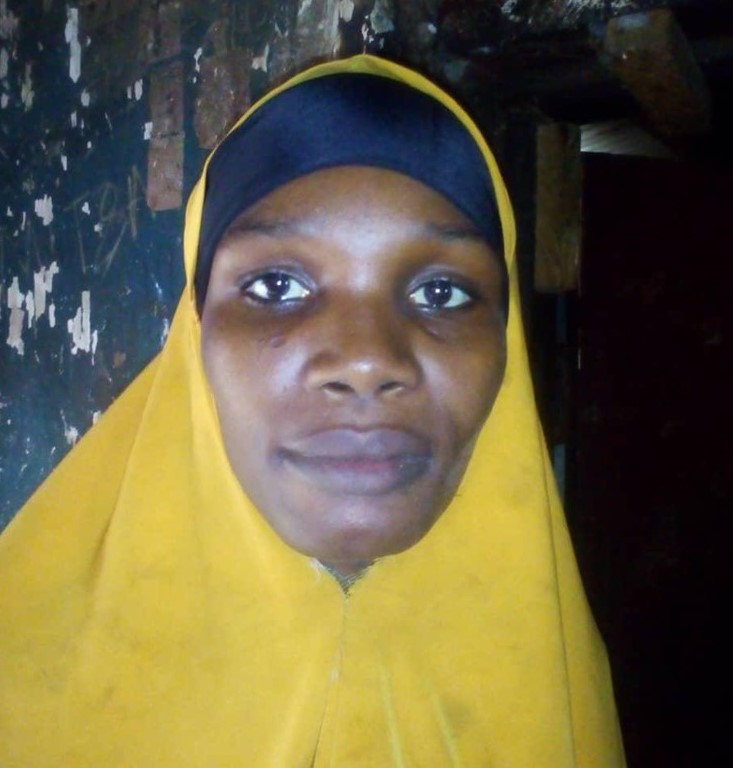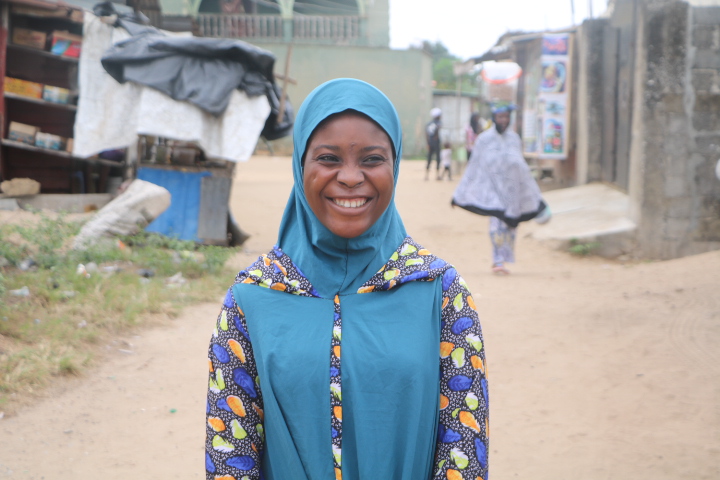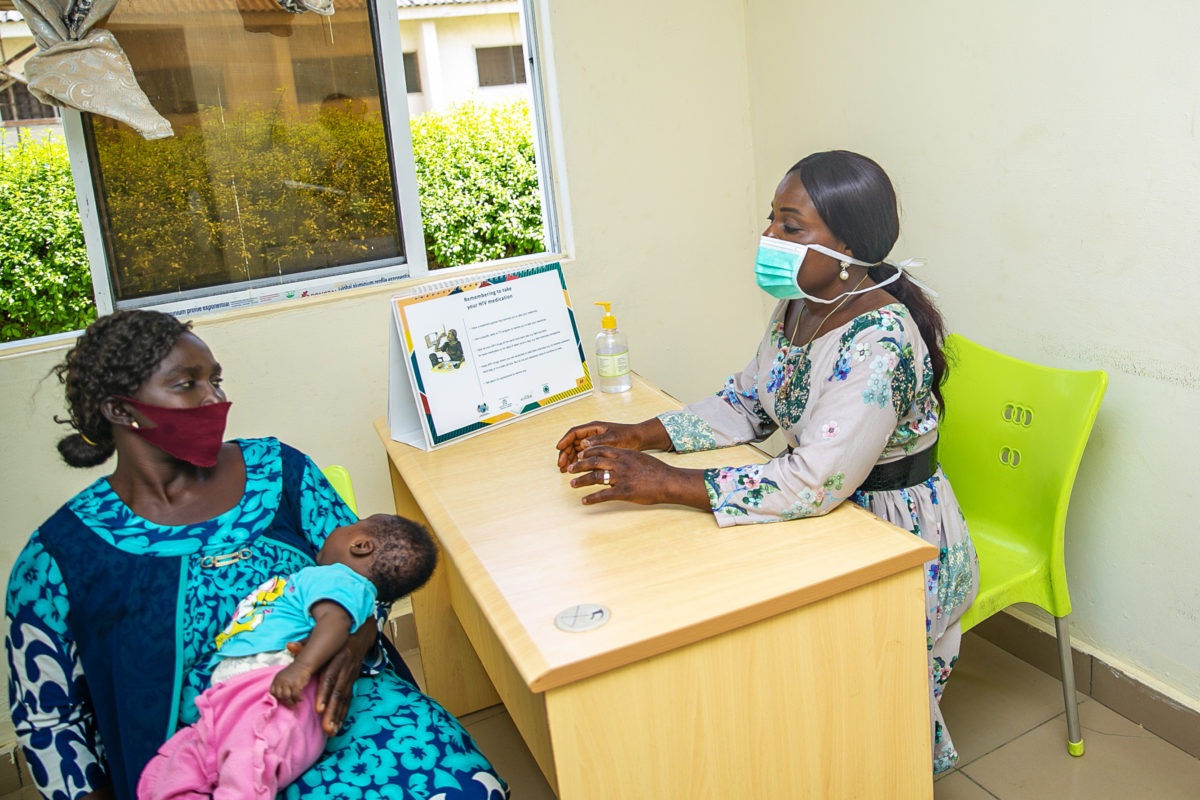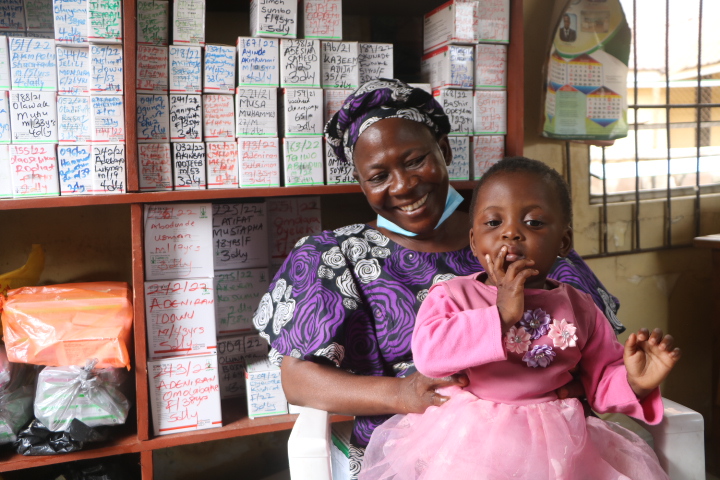When Ms. Prisca Peter, a 34-year-old single mother residing in Lagos State, Nigeria, started feeling ill in November 2023, she went to the nearby chemist to buy over-the-counter drugs including cough syrup. However, the medications did not alleviate the weakness, fever, loss of appetite, drenching night sweats, constant cough, and drastic weight loss she experienced.
Her condition deteriorated such that she was unable to walk or continue her work as a cleaner in a hotel. The Good Samaritan who came to her rescue was Mr. Sunday Michael, a TB survivor and advocate. Sunday was diagnosed and treated for tuberculosis in Ori-Okuta Primary Health Center Ikorodu LGA, and he referred her to the same facility in January 2024.
Mr. Michael said, “I noticed she was coughing badly, I asked her some questions and noticed she had almost the same symptoms I had, so I decided to take her to the health center I went to for my treatment and proper care.”
The USAID TB LON 3 project which the Institute of Human Virology Nigeria (IHVN) implements, supports screening and treatment for tuberculosis in 2,197 facilities and Ori-Okuta Primary Health Center is one of the supported facilities.
At the hospital, Prisca was screened for tuberculosis and identified as a presumptive TB case. Afterward, her sputum was collected for evaluation, and she was diagnosed with tuberculosis (TB) disease. She immediately commenced treatment and took her medications as prescribed.
“Immediately I was told that the sickness could be cured, I didn’t doubt it. I was tired of buying over-the-counter medications and still not getting well. I thought I would even die. I even wondered who would care for my children if something happened to me,” she said.
The USAID TB-LON 3 project also conducted contact tracing. Her four children aged 12, 10, 8, and 5 years were screened for TB and they were all identified as presumptive tuberculosis cases. Upon evaluation of the samples, two of them tested positive for tuberculosis and have been placed on treatment while the other two are receiving free tuberculosis prevention therapy with support from the USAID TB-LON 3 project.
USAID TB LON 3 Community Mobilization Advisor, Dr. Alege said, “Survivors of TB are a key part of our demand creation model as they’re often able to convince newly diagnosed persons who are yet to start treatment through their experiences. This model has been largely successful as the survivors’ point of view is usually more relatable to clients. The survivors on the other hand are more than willing to support healthcare workers in gratitude for saving their lives. Over time, TB survivors are also engaged as community volunteers to support those whose livelihood might have been negatively impacted by the disease condition.”
Prisca and her children are recovering. “If I was to pay money for the treatment, I wouldn’t have been able to afford it. I want to thank your organization for the free treatment. I also want to tell anyone who doesn’t want to take the drugs to know that it is for their good. The drug works well and makes you strong again,” she said.
She promised to be a tuberculosis advocate in her community like Sunday who referred her to the facility and supported her when she could not walk to the facility to collect her medications.
The USAID/Nigeria Tuberculosis Local Organization Network (TB-LON 3) project is a five-year project to scale up tuberculosis services and find missing TB cases. It started in April 2020 and is engaging stakeholders in strengthening a resilient system for sustainable TB control in Lagos, Ogun, Oyo, and Osun states. As of March 2024, 103,900 tuberculosis cases were identified, notified, and are undergoing treatment.

